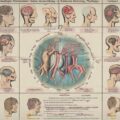What is Cognitive Psychology?
Cognitive psychology is the scientific study of the human mind and how we perceive, think, remember, and learn. It focuses on understanding how the mind works by studying internal mental processes such as attention, language, memory, perception, problem solving, and thinking.
Definition of Cognitive Psychology
Cognitive psychology can be defined as the branch of psychology that focuses on studying cognition, including mental processes that underlie perception, thinking, attention, language, memory and learning. The main goals of this field are to understand how the human mind works, how people acquire and apply knowledge, and how people comprehend and produce language.
Key Research Methods Used
Some key research methods used in cognitive psychology include:
- Experiments – Researchers design controlled experiments and systematically manipulate variables to study behavior and test hypotheses about mental processes.
- Neuroimaging – Techniques like fMRI and PET scans allow researchers to study brain structure and activity during cognitive tasks.
- Computational modeling – Researchers create mathematical models simulating human cognitive processes to understand and predict behavior.
- Observations – Researchers observe people performing tasks and activities relevant to mental processes being studied.
Real-World Applications
Understanding how people think, perceive, remember and learn has numerous real-world applications, such as:
- Education – Cognitive research informs teaching methods, curriculum design, education technologies and learning assessment.
- Human-computer interaction – Principles from cognitive psychology help develop user-friendly interfaces and intuitive, easy-to-use products.
- Mental health – Understanding internal mental processes aids diagnosis and treatment of cognitive impairments and disorders.
- Law – Research provides insight into eyewitness memory and identification as well as decision-making processes.
Cognitive Psychology FAQs
What are the main themes in cognitive psychology?
The key themes studied in cognitive psychology include attention, perception, memory, knowledge representation, language, problem solving, reasoning, and decision making. Researchers study the mental processes involved in each of these areas.
When did the field of cognitive psychology begin?
Cognitive psychology emerged as a major area of psychology in the 1950s and 1960s as some researchers became dissatisfied with the behaviorist approach and shifted focus to studying mental processes that determine behavior.
What are some major milestones in cognitive psychology?
Some major milestones include George Miller’s research on capacity limits of short-term memory in the 1950s, Noam Chomsky’s critique of behaviorism through his work on language acquisition in the 1950s, and Endel Tulving’s extensive research on human memory systems from the 1970s through the 1990s.
What are some specialized fields within cognitive psychology?
Some more specialized branches within cognitive psychology include psycholinguistics (study of language processing and acquisition), social cognition (how people process social information), cognitive neuropsychology (linking cognition to brain function), and computational cognitive science (using computational models to study the mind).
How does cognitive psychology relate to fields like behavioral psychology?
While behavioral psychology focuses strictly on observable and measurable behaviors, cognitive psychology seeks to open the “black box” of the human mind by studying unobservable mental processes. So cognitive psychology explores what is happening inside the human mind to lead people to ultimately behave in certain ways.









